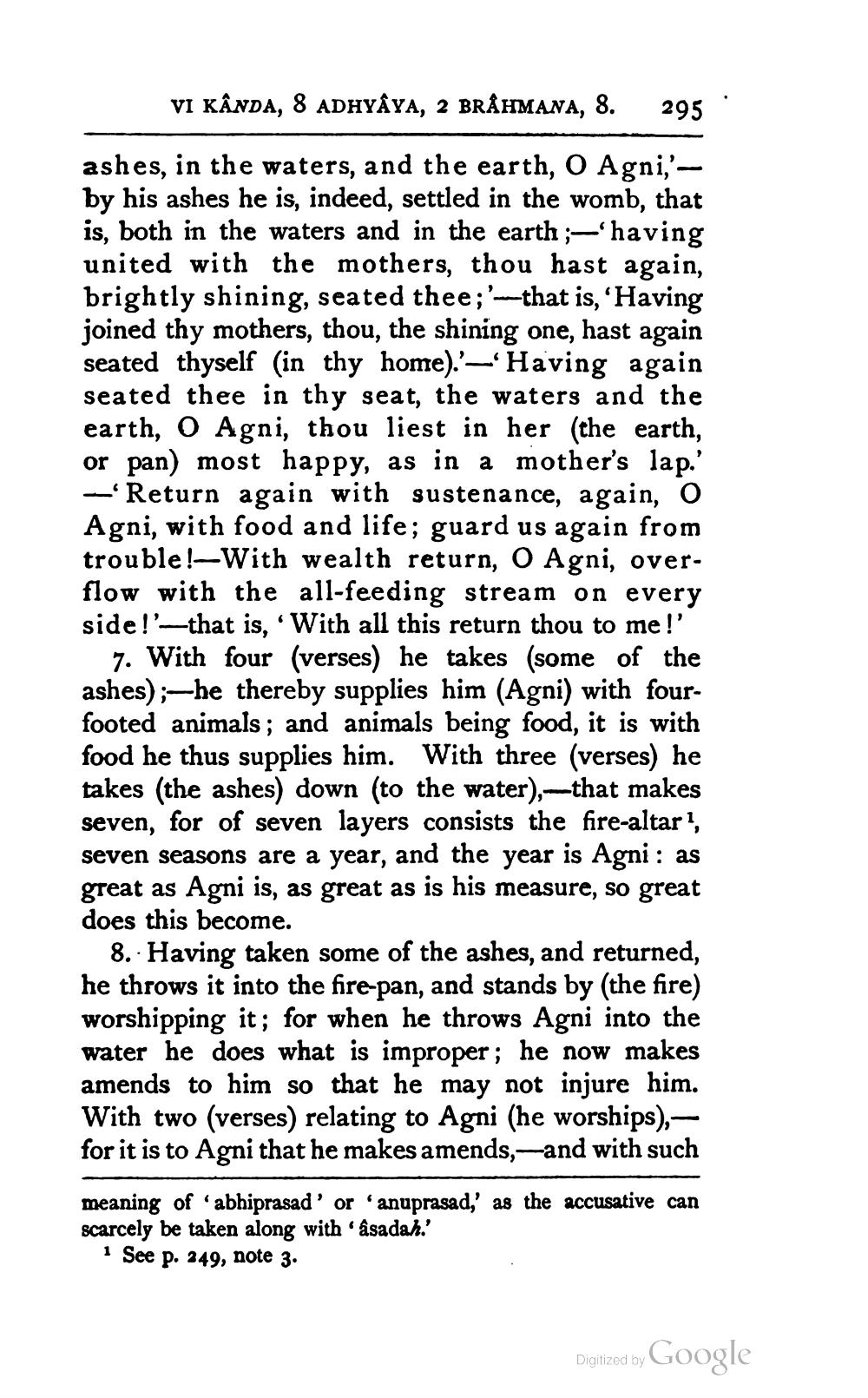________________
VI KÂNDA, 8 ADHYÂYA, 2 BRÅHMANA, 8.
295
ashes, in the waters, and the earth, O Agni'by his ashes he is, indeed, settled in the womb, that is, both in the waters and in the earth ;-'having united with the mothers, thou hast again, brightly shining, seated thee;'--that is, 'Having joined thy mothers, thou, the shining one, hast again seated thyself (in thy home).'— Having again seated thee in thy seat, the waters and the earth, O Agni, thou liest in her (the earth, or pan) most happy, as in a mother's lap.' — Return again with sustenance, again, O Agni, with food and life; guard us again from trouble! With wealth return, O Agni, overflow with the all-feeding stream on every side!'--that is, .With all this return thou to me!'
7. With four (verses) he takes (some of the ashes);-he thereby supplies him (Agni) with fourfooted animals; and animals being food, it is with food he thus supplies him. With three (verses) he takes (the ashes) down (to the water),—that makes seven, for of seven layers consists the fire-altar, seven seasons are a year, and the year is Agni: as great as Agni is, as great as is his measure, so great does this become.
8. Having taken some of the ashes, and returned, he throws it into the fire-pan, and stands by (the fire) worshipping it; for when he throws Agni into the water he does what is improper; he now makes amends to him so that he may not injure him. With two (verses) relating to Agni (he worships), for it is to Agni that he makes amends,--and with such
meaning of abhiprasad' or 'anuprasad,' as the accusative can scarcely be taken along with âsadah.'
· See p. 249, note 3.
Digitized by Google




